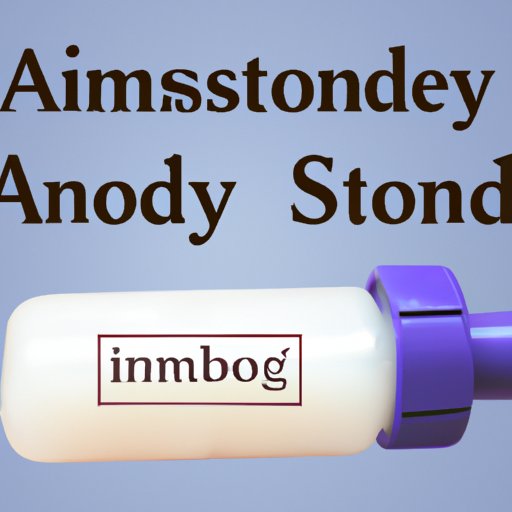
Introduction
Monoclonal antibody treatment is a type of therapy that is used to diagnose, treat, and prevent certain diseases. It involves the use of man-made proteins that are similar to the antibodies produced by the immune system to target specific cells in the body.
While monoclonal antibody treatment has shown promise in the treatment of various conditions, including cancer and autoimmune diseases, there has been some concern about its safety. In this article, we will explore the safety of monoclonal antibody treatment and weigh its risks and benefits.
The Safety of Monoclonal Antibody Treatment: What You Need to Know
Like any medical treatment, monoclonal antibody therapy comes with potential side effects. These can range from mild to severe and may include:
- Fever
- Chills
- Nausea and vomiting
- Fatigue
- Allergic reactions
- Increased risk of infections
It is important to discuss safety concerns with your healthcare provider before starting treatment, as they can help you weigh the risks and benefits and determine if the treatment is right for you.
There are also common safety protocols in place, such as monitoring for side effects during treatment and administering medications to manage symptoms if they do occur.
Understanding Monoclonal Antibody Treatment: Weighing the Risks and Benefits
Monoclonal antibody therapy works by targeting specific cells or proteins in the body that are involved in the progression of certain diseases. By targeting these cells or proteins, the therapy can help to slow or even stop the progression of the disease.
When considering monoclonal antibody treatment, it is important to weigh the potential risks against the potential benefits. While the therapy may have side effects, it may also have significant benefits in treating certain conditions.
There are many successful examples of monoclonal antibody therapy, including treatments for cancer, rheumatoid arthritis, and other autoimmune diseases.
Are Monoclonal Antibody Therapies Safe for COVID-19 Patients?
Monoclonal antibody therapy has also shown promise in the treatment of COVID-19, particularly for high-risk patients who are not yet hospitalized. When used for COVID-19, the therapy can help to reduce the severity of symptoms and prevent hospitalization.
Studies have shown that monoclonal antibody treatments for COVID-19 are generally safe and effective, although there may be potential risks and considerations for vulnerable populations, such as those with compromised immune systems.
Monoclonal Antibody Treatment Safety: Separating Fact from Fiction
There are many myths and misunderstandings surrounding monoclonal antibody treatments, which can make it difficult to understand their safety. It is important to rely on reputable sources for information and to address common misconceptions.
One common myth is that monoclonal antibody treatments are only for experimental or last-resort cases. In reality, these treatments are approved by the FDA for use in many conditions and have been shown to be safe and effective.
The Safety of Monoclonal Antibody Treatment: Insights from Clinical Trials
Recent clinical trials have provided valuable insights into the safety of monoclonal antibody treatments. These trials have shown that the treatments are generally well-tolerated and have minimal side effects.
However, there may be potential implications for future treatments, such as the need for ongoing monitoring of patients and the development of new safety protocols.
Experts Weigh in: The Safety of Monoclonal Antibody Treatment for Cancer
Monoclonal antibody treatments have been used for the treatment of various types of cancer, with varying levels of success. Healthcare professionals and researchers have weighed in on the safety of these treatments, noting that while there may be potential risks and side effects, the benefits may outweigh the risks for certain patients.
Future directions for research and treatment may involve the development of new and more targeted monoclonal antibody treatments, as well as the exploration of combination therapies that can improve outcomes for patients.
Conclusion
When considering monoclonal antibody treatment, it is important to have open and honest discussions with your healthcare provider about the potential risks and benefits. While there may be some side effects associated with the treatment, there are also many successful examples of its use in treating various conditions.
By understanding the safety of monoclonal antibody treatments and working closely with healthcare providers, patients can make informed decisions about their treatment options and achieve the best possible outcomes.




